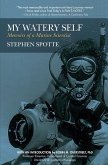In The Smoking Horse, marine biologist Stephen Spotte recounts his youth from the mid-1950s through the turbulent 1960s. After growing up in a coal camp in southern West Virginia, he was expelled from a Maryland boarding school and over four summers lived a bohemian life in Beach Haven, New Jersey, working variously as a lifeguard, clamdigger, dishwasher, laborer, and milkman. Beach Haven in the early sixties was a riotous community of artists, musicians, drunks, junkies, and those who had simply fallen through life's cracks. It was, someone said, a seaside Greenwich Village, and in fact it became a weekend destination of New York City bohemians abandoning the hot summer sidewalks to mill with itinerant beach bums, boat jockeys, New Jersey pineys, and Philadelphia hipsters. It was here that Spotte began a lifelong study of literature and the sea, always with an ear to life's fractured melodies. Torn between art and empiricism, he moved to New York, haunting Village coffee shops, listening to beat poets, and following New York's jazz scene, where ragged sages claimed enlightenment in Coltrane's sax. Following stints as a deckhand in the West Indies he returned to college and trained to become a marine biologist. His professional life began in Niagara Falls, New York, where the Great Lakes were dying after years of pollution, the citizens struggling to breathe air reminiscent of the coal camps. The end of the memoir finds him separated from his wife and wandering alone in the Mexican desert astride a skeletal, marijuana-dependent horse and trailed by a stray dog, still seeking the mythical place where reason and revelation intersect.
Dieser Download kann aus rechtlichen Gründen nur mit Rechnungsadresse in A, D ausgeliefert werden.









